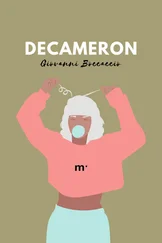Theresa Tinkham was eating breakfast alone when Billie came. She was thinking of her husband Darl. Through the window she watched Billie ride up. The morning sun was shining brightly. The sky promised a beautiful day. Billie’s arrival turned the page of her life. She entered a new chapter on that bright morning — the morning that was to become the darkest of her life.
Billie decided that he wanted to study psychology when he went away to college. He had watched the wives, the mothers and fathers, the sisters and brothers who were left behind. He had studied them — not unfeelingly — and yet it was hard not to quantify, to clinically categorize the different reactions that his news elicited. There were those like Mrs. Simpson who had no time for shock — who donned sorrow in that instant as if it were a cloak hanging conveniently nearby, simply waiting to be worn. Others, like Mrs. Johnson, were not ready yet for grief. Because the unreality of it pushed everything to the side: losing her first son when his B-29 crashed on maneuvers, and then a second son in Belgium — two sons, in defiance of the odds, sacrificed to this hungry war.
Once, Billie had to read a wire to one of his classmates. It told of the death of the boy’s father. Billie didn’t know what to say. It is difficult to bring news of death to one much older than yourself. It is harder still to tell it to someone your own age, someone you josh around with, someone whose own life has just gotten started.
“I never get used to it,” Billie told his mother one night when she had sought the reason for his pensive withdrawal to his room. She found her son sitting at his window, gazing up at the clear, star-stippled sky. The radio in Billie’s room was turned down low, the voice of the man who was giving news of the war both distant and ever present. “But I feel like — well, it’s like it’s something I’m supposed to do. Everybody’s got some lousy job in this war, Ma. I guess this is mine.”
One morning in December of 1944, Billie was handed a telegram that seemed different from all the others he had delivered. It was directed to the town’s mayor. There was another one that got put into Billie’s hand, this one going to the editor of the Express . When all was said and done, Billie walked out of the offices of the Western Union company with several separate wires to be delivered, each destined for a different elder in the community and each carrying news that for one bright and happy morning in this town which had for its size given more of its blood and sinew to the fight against fascism and for liberty and for American ideals and for everything else that Kate Smith sang about on the radio — that for one bright and happy morning there would be no death, no hometown casualty of war, no miserable imprisonment to be conveyed through the clipped, economically worded language of telegraphy. What was being conveyed was this: a ship had been commissioned, a ship that had been launched on November 9. It was given the name Red Oak Victory , in honor of the town’s extreme sacrifice: its young men — both those who would come home crippled and scarred and forever changed by the war, and those whom the Secretary of War — through the good offices of Western Union — reported would not be coming home at all.
There are Red Oak boys buried all over the world.
It was a nice change for Billie — the chance to deliver telegrams that put smiles of joy and pride on the faces of their recipients. And upon his own face as well. But such a smile doesn’t have a very long shelf life. The next day would come yet another yellow envelope, followed by another, and then another. Each would bear the requisite three stars, and each would need Billie Smaha to make sure that the proper person received it. Billie was a conscientious boy who never shirked his duty.
Stop.
1944 SEQUESTERED IN NEW MEXICO
Trust is an important thing in a marriage, and it was especially important in ours. I uprooted her from her parents and from her sister and from all of our friends in Berkeley and flumped her and the boys down upon this windswept mesa in one of the remotest reaches of northern New Mexico. And then I said — not to put too fine a point on it—“I can’t tell you why.”
He thinks I didn’t know. Not until the Trinity test in July of ’45. That’s what’s so funny. And the wind and the dust and the mud and all the daily inconveniences were a true test, I’ll grant you that. But there were also consolations in the unearthly beauty of the place — the gorgeous strata of color in our sunset skies: the orange and lavender and scarlet, the shimmer and glow of cottonwood and aspen gold in autumn — even the exquisite native pottery that fills our house to this day. I remember, as well, all the lasting friendships we made there. It was a special place and a special time, and I felt privileged to be a part of it. In theory. Though what came from it has always troubled me .
It had to be done.
My husband’s right. Somebody had to do it. Philip was a physicist — one of the best. He was young and talented and the war had to be won. He didn’t tell me, but I knew .
You say you knew. You always say you knew, and yet I never mentioned any of it to you. I was careful in everything I said.
And yet. And yet. Philip, dear, please give me credit for being a halfway intelligent woman. I have a master’s degree. I was well aware that it wasn’t a submarine you men were building up there, though you got some mileage out of that nutty canard. And then there was that disastrous attempt at putting forth that bit of fiction about some kind of electricity-powered rocket. As if Flash Gordon had suddenly taken up residency in Los Alamos and we were all girding ourselves to fight the axis of Hitler and General Tojo and Ming the Merciless!
Whatever you knew or didn’t know, you were a trooper and a trump through it all, and I loved you for it.
Did I have a choice? Oppie asked you to come and you came. And you brought your wife and your two boys with you, and what a time we had.We were certainly in the thick of it by 1944, weren’t we? Everything good about that place had revealed itself and everything bad, excepting the water crisis the following year—
Our water tower failed us. The pipes froze. Things got pretty grimy.
Well, my point is that by and large we were tested and we passed the test with surprising resilience and ingenuity .
But with some complaint.
Of course I complained. We all complained. We were civilians and that’s what American civilians do. We came here out of patriotic duty to assist the United States Army in winning the war for the Allies. And here in this secret, isolated community of soldiers and scientists — lovingly deemed by General Groves “the finest collection of crackpots the world has ever seen”—we made a life for ourselves and our families. It was a life unlike any that had ever been or probably ever would be .
In Washington we were called “Manhattan District,” in Santa Fe, “Site Y.” To anyone who ever wanted to write to us (and you will remember this, honey: all those letters you could never reciprocate without the censor breathing down your neck), we were known simply by our post office address — one address shared by all: P.O. Box 1663.
There upon the mesa we referred to our home as “Los Alamos,” which is Spanish for cottonwood trees. Although I would have believed you if you’d told me the words also meant “Phantom Town.” We were all spooks and spirits, weren’t we, dear? Occupants of a shadow world. Officially, we weren’t there, yet our neighbors over in Santa Fe and the men and women who came up from the pueblos to clean our homes and sweep the grit from our porches and do all those jobs that the Army couldn’t or wouldn’t do — they obviously knew we were there. We were flesh and bone to them. And though they didn’t know why we’d come, they had to have suspected that it was for some vitally important purpose .
Читать дальше












